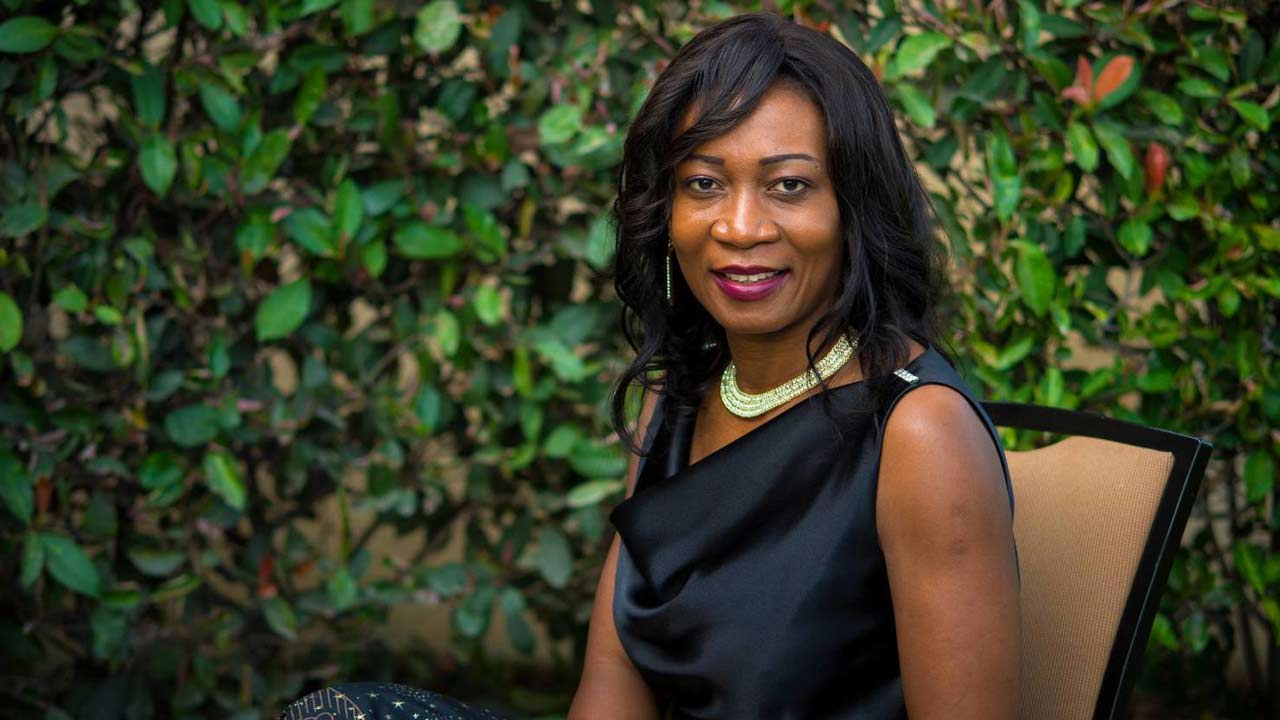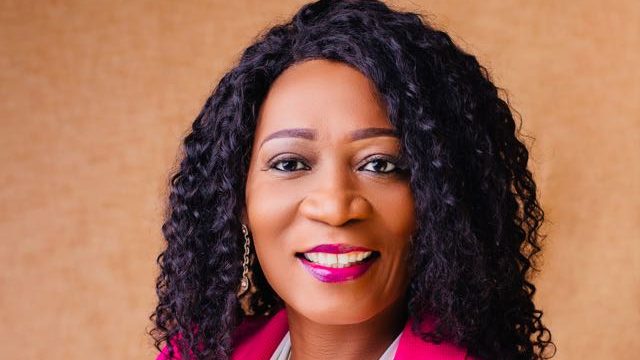
By Chris Onuoha
Professor Akindotun Merino is a global leader, solutionist and transformation enthusiast who clearly articulates the remarkable transformation of human experience through the application of mental health education and leadership concepts.
She is a chief Academic officer, business specialist, mental health advocate, system psychologist, professor and author of several books. Merino is the Chief Executive Officer of Akin Merino Network and Jars Group of organisations which include Jars Education institute which has a focus on mental health research, training, advocacy, and treatment. She serves as a Behavioral Health Commissioner in county of San Bernardino in the United States where she lives.
In the past five years, Prof Merino has taken her advocacy and awareness drive to Nigeria. Through conferences and workshops held physically in Lagos, Nigeria, she was able to deal with issues that concerns mental wellbeing of the people. She teaches people to rearrange mindsets in order to achieve more fulfilling lives and how to create portals of success in their families and communities. She works with governments, educators, businesses and individuals to identify and develop operational strategies for the next stage of growth.
Recently, she inspired another summit held virtually with the theme: “Nigeria Behavioral and Mental Health care in Nigeria – a trauma informed approach.” This was an all important conference that drew influential mental health care stakeholders together for a common goal; discussions and proffering solutions to mental health challenges in the country with major focus on trauma. It is a consortium that put together all the stakeholders in the mental health space participating and provided a structure for a way forward.
Prof. Merino in her earlier remarks spoke about the need to have holistic approach to dealing with traumatic situations as it is a major cause of mental health imbalance among people with such issues. She explained how the mental healthcare is practiced in United States in comparison to Nigeria, while posing a teaser as who should be involved in this practice.
Among the experts who featured on the virtual programme include Dr. Mustafa T. Sanbe, Dr. Adebowale, Dr. Bolaji Adesanya and other contributors. The programme was anchored by Professor Akindotun Merino.
In her remarks, Merino stressed; “We need a mental health care in all areas of our lives, and it is a call for all: parents, laymen and all the stakeholders in the mental healthcare practice. She spoke about professionals, having access to do what they are suppose to do and also mentioned that Nigeria is a country that is moving in the trajectory of mental health wellness and awareness.
She worried that to get things done in this country, ‘you have to lobby consistently and always answer the questions why should I be doing what I am doing,’ which according to her, is selling your product the right way.
There are two key points that was focused on the discussion, which are training and learning. She noted that knowledge ahead of certificate must be a priority. According to her, “learning is a change of behaviour. When you learn and have a lot of certificates without change in your mindsets positively, that means no learning has taken place.” “You can’t give what you don’t have. If your learning is below average, it won’t work because you are dealing with the mind, emotions and medication. So, for you to transform situation, you have to get to adequate knowledge,” remarked Merino.
Contributing, Dr. M. T Sanbe noted that serious training goes on in the Nigerian universities that offer psychology as a field of study. “There’s a practical training for both undergraduate and post graduate levels in the Nigerian Universities offering psychology courses. The individual psychologist would be exposed to real situation of practice in specialty. There’s a developmental, practical and clinical psychology along the line of practice. The post graduation students undergo internship programmes at various centers around the country. And their mentoring is handled by experts who have not less than second degree in programme of learning and skills in psychology.”
Sanbe also added that, “In getting it right as a professional psychologist, you have to experience it practically and practice it in real sense.” He also said that psychologist in the country is lower than the number of psychiatrists. “Currently, I noticed that the number of professional psychologist in the country is about 250, but in the undergraduate programmes, we have them in the multitudes. Unfortunately, most the students are not prepared for the course of psychology as a field; we lose them to other professions when they graduate,” says Sanbe.
According to him, “emphases need to be laid on the training of psychologists because when they are treated with special preference, they will not lose focus on the course.”
“Psychological injuries are much worse than physical injuries. You have to note here that to qualify as psychologists, you have to attain up to second degree in the university and I think it is a universal position as obtained here in Nigeria,” says Sanbe.
Merino mentioned that the deficiency in number of psychologists in the country is the reason why life coaching as a career has become vital, including the faith preachers in the churches. She also mentions that the Police department needs more trauma training in their job to enable them relates well with people.
Sanbe continuing, said, “Meanwhile, in Nigeria there are Nigerian Psychological Association, Clinical Psychologists Association and others in operation, and also mentioned the need to engage the diaspora commission in Nigeria headed by Hon. Abike Dabiri-Erewa, the chairperson of the Commission.
Another contributor Dr. Adebowale added that Social workers are usually a reference point when sourcing psychologists in Nigeria, but noted that NGOs have taken the place of social workers. He said that mental healthcare workers in Nigeria are basically psychiatrists and psychologists. “We also have Nigeria social workers and occupational therapist who are involved in such service.”
Adebowale noted that another thing worth mentioning is practice regulations. “School teachers are also involved in these services because most times they are invited and given guide on how to apply the services while counseling students in their schools. But for life coaches and motivational speakers, I don’t think their services are regulated or belong to an association that operates with regulations in relations to their qualification,” he said.
Speaking about life coaches and motivational speakers, Merino disclosed that this group has been in existence globally. “In the past five years, this group has been operational, but members are notified when to attain a life coach status with instructions not to go beyond their scope,” she said.
Continuing, she said, “When I was in Nigeria 3 years ago, I came across group with name tag, ‘mental health specialists’, but after enquiry, I noticed that most of them studied different courses unrelated and not qualified by the virtue of the profession to become professional psychologists.”
Adebowale mentioned that; “In referrals of patients with mental health challenges, they are advised to go to professionals who have the adequate knowledge. The number of life coaches is far more than psychologists or psychiatrist and for someone working in an office, would readily go to an executive coach than a psychiatrist because of the stigma. More so, life coaches are advised according to international standard not to go beyond their scope. In Nigeria there is need to implement basic mental health procedures, and also need for interdisciplinary team for workable process.”
Merino added, “For sure, everyone wants the same thing. We all in our own little area want to protect it. The reality is that there is a lot of us on ground, there should be gatekeepers to keep this process working. If you are an executive life coach for example, sometimes, there are other more serious cases of mental challenge that may be beyond your scope, and there should be a trauma training to add up to experiences garnered.”
Adebowale mentioned that things must be regulated to show some level of discipline and seriousness, while the consortium argued the differentiation between life coaches and counselors. They noted that counselors are professionals who have passed through the normal qualification of Masters’ degree and be registered as a psychologist than a life coach. Other things touched are issues of courses and capacity building including regulations for effective practice.
Prof Merino mentioned that one of the things she is proposing as a convener is to have a consortium of all the stakeholders and to create awareness to attract funding. She noted that the need to use technology for trauma training for nurses including community health workers. “It is observed that this group, community health workers, needs the technology and innovative ideas to get people out of stigma. We also need to utilise how mental health care is practiced in the western community into African community to achieve good results,” remarked Merino.
Meanwhile, in another session the summit held earlier and anchored by Tolushe Francis and Modupe, it featured speakers that include Prof Taiwo Lateef Sheikh, Enahoro Ohai, Dr. Timothy Akinbowale, Dr. Folashade olajubu and others.
Setting the ball rolling was remarks from Dr. Sheik who spoke on public policy responses to the mental health impacts. In his outlines he mentioned national health as quoting the World Health Organization’s Director, Dr. Tedros Ghebreyeus, saying that mental health must be an integral part of universal health coverage UHC and nobody should be denied access to mental health because of race, finance or place. Dr. Sheik said that in driving policy, there is lack of equity and cost of healthcare. He said that health care insurance are for only few in the country sighting Kaduna as example.
“Legislations are lacking because we operate the colonial mental health system,” says Sheik as he noted that legislation will compel government to implement this.
“To provide adequate mental health care in Nigeria, areas that need looked at are mainstream mental and neurological health within national health , social welfare , education and criminal justice policy; integrating it into primary care system; strengthening and developing existing systems for human resources development; decentralization of specialists mental and neurological health services, encouraging intersectional partnership with other key government organisations; linking to educational programmes in schools, workplace, the community and media,” Sheik added.
He ended by saying that “Nobody should be denied access to mental health care because she or he is poor or live in a remote place.
Another speaker Enahoro Ohai speaks on the role of life coaching in the mental health sector, saying that coaching is a holistic means of helping people find a balance to their lives so as to improve their life and goal. “Life Coaches receive calls of depression from people who do not know what they want. Sometimes they could not express their need. Differentiating from other services, life coach will focus on the future and life in the past of the fellow without delving into empowerment and others. The coach identifies the vital part to deal with and when to refer a client to another practitioner. Life coaches receive calls more often before psychiatrists and psychology. They also partners with clients in other not to get into relapse,” Dr. Enahoro added.
Other speakers noted need to drive stakeholder’s engagement from start to finish which include parents, children, relations, neighbors and environment and on exploring solution to mental health. “the major issue is poor professional service delivery in our institutions. Solutions abound from trained experts, pastors, and even traditionalists but if they are not properly coordinated, there won’t be solution,” Akinbowale said.
Dr. Sanbe noted that one of the challenges we have in Nigeria is the spiritual angle to treatment that most people engage forgetting that some patients did not come down with mental health which may have been caused by psycho social. “Counseling units in schools should not be ignored. Through this method, you will be amazed to hear or know what goes on in the families of patients. In the breakdown, Bio means using education, while psychosocial, using the means of therapy and spiritual falling the purview of a chaplain. Stigma here is a major issue and more importantly, self stigma,” he said.
“There is a need for national value orientation and integration of mental health delivery into primary healthcare services.” According to him, another challenge is patients not been cared or abandoned by family member. Peer support according to him is also important especially for drug abuse patients” said Akinbowale.
Dr. Folashade Olajubu in her contribution spoke on trauma and collective landscape in Nigeria. Disclosing three types of trauma, acute, chronic and complex, she said that all comes to bears when acute from start was not taken care of.
Mental health challenge of the parents affects the entire family too, intimate partner violence, bereavement, sexual assault, genital mutilation, polygamy and infertility are some of the causes mental health. She however noted that, others; environmental terrorism, kidnapping, ethnic conflict and corruption and many more with effects and response which has lasting impacts on others. Although symptoms are overwhelming such as sleeping and stress disorder, and all these need to be put into consideration.






